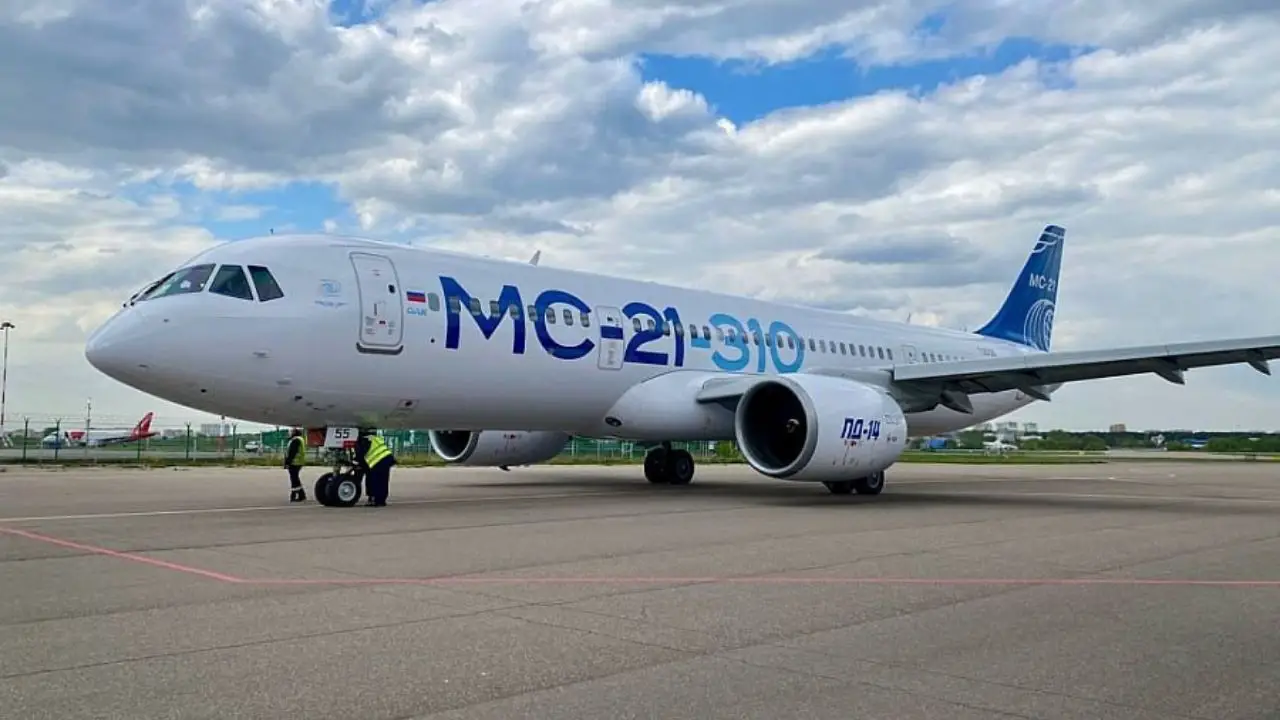The MC-21-300 has become the first Russian narrow-body aircraft to be equipped with a next-generation power supply system, which is the foundation of virtually all other systems, according to the press service of PJSC United Aircraft Corporation (UAC).
The Electrical Power System (EPS) of an aircraft is a critical system that is responsible for the generation, distribution, management, and monitoring of electrical power across all onboard components. It guarantees a consistent and dependable supply of electricity to critical systems, including avionics, illumination, flight controls, hydraulics, cabin systems, and others, during the flight. The aircraft’s engines generate power through integrated generators, and in certain instances, an Auxiliary Power Unit (APU) or battery system. Subsequently, this power is transformed into forms that are more suitable for use, such as direct current (DC) or alternating current (AC), contingent upon the specific needs of each subsystem.
Modern EPS designs, such as those utilized in the MC-21 aircraft, outperform conventional power distribution by integrating intelligent control units that are capable of conducting real-time diagnostics, automatic fault detection, and load reconfiguration. These sophisticated systems are capable of evaluating the condition of electrical circuits, disconnecting faulty components to prevent damage, and transitioning to alternative power sources in the event of a failure—all without the need for operator intervention. Not only do these intelligent EPS improve flight safety and system reliability, but they also decrease maintenance times by providing pilots and ground personnel with detailed feedback.
Before the sanctions were implemented, the MC-21’s electrical power system was being developed abroad as part of a technical assignment issued by Irkut Corporation (now Yakovlev). However, those sources did not publicly identify any specific foreign EPS suppliers. The development of avionics and electronics for the MC-21 was a collaborative effort between multiple Western companies, including Honeywell, Thales, Elbit Systems, and Rockwell Collins. Nevertheless, the publicly available reports do not explicitly identify any of these companies as EPS suppliers. Foreign suppliers withdrew from the initiative subsequent to the implementation of sanctions. The primary operation has been performed by the Russian company OKB “Aerospace Systems” (AKS) of the Promtech corporation since 2022.
The new system is functionally secure. The operation of all main components is constantly monitored by its electronic units. The new EPS will autonomously transition to alternative power sources in the event of a failure, as the aircraft has multiple power sources.
According to Vitaly Naryshkin, the Chief Designer of the MC-21 aircraft, it is important to substitute the intricate power supply system, which is essential for the operation of all other systems on the aircraft. The system is new; it has never been implemented in Russia. In the event of malfunctions, the MC-21’s EPS is capable of performing self-diagnostics and reconfiguring itself, which sets it apart from all other Russian aircraft and even many Western ones (with the exception of the most recent models).
The MC-21 airliner’s modernized power distribution system is capable of evaluating the condition of protection circuits and the conduct of electrical consumers. The EPS has the ability to disconnect the problematic component from the power source in the event of a malfunction. The pilot receives information regarding the status of system components. This information will facilitate a comprehensive analysis of the EPS’s performance and reduce the time necessary to restore the aircraft’s functionality.
The system is currently under development. The MC-21-310 aircraft with factory number 0013 will receive the final version for installation.
Airbus and Boeing procure their Electrical Power Systems (EPS) from a network of specialized aerospace suppliers, rather than producing them in-house. These systems are essential to the operation of modern aircraft, as they supply consistent electrical power to a variety of components, including avionics, flight controls, lighting, and cabin systems. The complexity and significance of advanced EPS have increased substantially as aircraft have transitioned to “more-electric” architectures, particularly in models such as the Boeing 787 and Airbus A350.
Hamilton Sundstrand, which is now a subsidiary of Collins Aerospace under RTX (formerly Raytheon Technologies), is the main supplier of critical EPS components to Boeing. The Main Power Distribution System (PPDS) and Remote Power Distribution Units (RPDUs) are among the power generation and distribution systems that this company offers for models such as the 787 Dreamliner. GE Aviation also contributes to integrated electrical systems in certain configurations, particularly when paired with GE engines.
Airbus, on the other hand, significantly depends on Thales Group for the electrical generation and conversion systems of aircraft, including the A350 XWB. Advanced power electronics and variable frequency generators are supplied by Thales to facilitate the aircraft’s high-efficiency electrical system. Safran Electrical & Power is an additional significant supplier, offering wiring harnesses and power distribution devices. Liebherr-Aerospace, which is primarily recognized for its air management systems, also contributes to specific electrical subsystems.
Airbus and Boeing both integrate smart power distribution with self-diagnostic capabilities and design their aircraft with multiple redundant power sources, such as engine-driven generators, auxiliary power units, and batteries. This supply chain model is in stark contrast to Russia’s current approach to the MC-21 program, which is transitioning to entirely domestic production of complex subsystems such as the EPS as a result of sanctions.
In April 2025, the MC-21 equipped with Russian PD-14 engines performed its first flight over Irkutsk. The crew successfully completed the test. The testing program for the MC-21 is scheduled to be completed by summer 2026. After the Irkutsk tests, the aircraft flew to Zhukovsky airfield, where certification tests began in June, including testing of the radio communication equipment.
Furthermore, the MC-21 has been equipped with wardrobes, overhead storage, and seats that are manufactured domestically. On July 14, specialists conducted additional flight tests in Zhukovsky to evaluate the functionality of the onboard radio-electronic systems.
Official Website of Youtube Channel – Altitude Addicts
